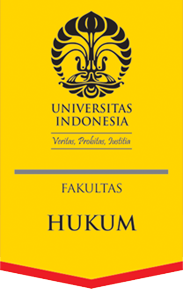Abstract
According to Dworkin, the equality that must be pursued by a government is equality of resources, not equality of welfare, as emphasized by utilitarianism in its various versions. According to him, the concept of resource equality is superior in interpreting abstract ideas about human equality. First, the concept of resource equity avoids ambiguity in understanding distributive justice and, second, avoids divisions that contradict our intuition about justice, two problems that plague the formulation of welfare equality. Equality of resources is proposed by Dworkin in the framework of distributive justice. According to Dworkin, it is in this equality of resources between the principles of equality and personal responsibility that often conflict can be reconciled, of course, by finding other concepts that satisfactorily fulfill both, for example the concept of insurance. Distributive justice presupposes that there is a theory of freedom, although in this theory of resource equity the dangers of freedom and equality will conflict but the theory of freedom will eliminate that danger. The problem is that the political economy policies of a country are not only dictated by the Constitution but also by the free market system, in which the people buy and sell their products and work. Of course the results are not the same for all. Then how does the Constitution of the Indonesian Welfare State guarantee equality? Because the people cannot be responsible (cannot fully vote) and determine their place in the economy, nor are they responsible for their talents, good and bad luck in life. Meanwhile, if the government takes the extreme position of wanting to distribute welfare equally regardless of the people's choice for their work, then the government here is tantamount to failing to respect the responsibility of the people to make something in their lives.
Bahasa Abstract
Menurut Dworkin kesetaraan yang harus diupayakan sebuah pemerintahan adalah kesetaraan sumber daya (equality of resources) bukan kesetaraan kesejahteraan (equality of welfare) seperti ditekankan utilitarianisme dalam berbagai versinya. Konsep kesetaraan sumber daya menurutnya lebih unggul dalam menafsirkan ide abstrak tentang kesetaraan manusia. Pertama, konsep kesetaraan sumber daya terhindar dari ambiguitas dalam memahami keadilan distributif dan, kedua, terhindar dari pembagian yang bertentangan dengan intuisi kita tentang keadilan, dua masalah yang menghinggapi rumusan kesetaraan kesejahteraan. Kesetaraan sumber daya diajukan oleh Dworkin dalam kerangka keadilan distributif. Menurut Dworkin, dalam kesetaraan sumber daya inilah antara prinsip persamaan dan tanggungjawab pribadi yang kerap berkonflik bisa didamaikan tentu caranya dengan menemukan konsep-konsep lain yang memenuhi keduanya secara memuaskan, misalnya konsep asuransi. Keadilan distributif mengandaikan ada suatu teori kebebasan, meskipun dalam teori kesetaraan sumber daya ini bahaya kebebasan dan persamaan/kesetaraan akan berkonflik tetapi teori kebebasan akan mengeliminasi bahaya itu. Persoalannya, kebijakan ekonomi politik suatu negara selain didikte oleh Konstitusi juga didikte oleh sistem pasar bebas, di dalamnya rakyat membeli dan menjual produk dan kerjanya. Tentu hasilnya tidak sama bagi semua. Lalu bagaimama Konstitusi Negara Kesejahteraan Indonesia menjamin persamaan? Sebab rakyat tidak bisa bertanggungjawab (tidak dapat sepenuhnya memilih) dan menentukan tempat mereka dalam ekonomi, juga tidak bertanggungjawab terhadap bakat, nasib baik dan buruk hidup mereka. Sementara itu, andaikan pemerintah ambil posisi ekstrem mau mendistribusikan kesejahteraan secara sama terlepas dari pilihan rakyat untuk pekerjaan mereka, maka di sini pemerintah sama artinya gagal menghormati tanggungjawab masyarakat untuk membuat sesuatu di dalam hidup mereka.
References
Brown, Alexander 2009. Ronald Dworkin’s Theory of Equality. New York: Palgrave Macmillan.
Dworkin, Ronald 1977. Taking Rights Seriously. Cambridge, Massachusetts: Harvard University Press.
Dworkin, Ronald 1985. A Matter of Principle. Oxford: Oxford University Press.
Dworkin, Ronald 1986. Law’s Empire. Cambridge: The Belknap Press of the Harvard University Press.
Dworkin, Ronald. 2000. Sovereign Virtue: The Theory and Practice of Equality. Cambridge, Massachusetts: Harvard University Press.
Dworkin, Ronald 2011. Justice for Hedgehogs. Cambridge and London: The Belknap Press of the Harvard University Press.
Rawls, John 1993. Political Liberalism. New York: Columbia University Press.
Sen, Amartya 2002. Inequality Reexamined. Cambridge, Massachusetts: HarvardUniversity Press.
Recommended Citation
Bello, Petrus CKL
(2022)
"TEORI KESETARAAN SUMBER DAYA DWORKIN DALAM KERANGKA KEADILAN DISTRIBUTIF DAN IMPLIKASINYA TERHADAP KONSTITUSI NEGARA KESEJAHTERAAN,"
Jurnal Hukum & Pembangunan: Vol. 52:
No.
2, Article 7.
Available at:
https://scholarhub.ui.ac.id/jhp/vol52/iss2/7
Included in
Administrative Law Commons, Comparative and Foreign Law Commons, Constitutional Law Commons, Criminal Law Commons, Natural Resources Law Commons

